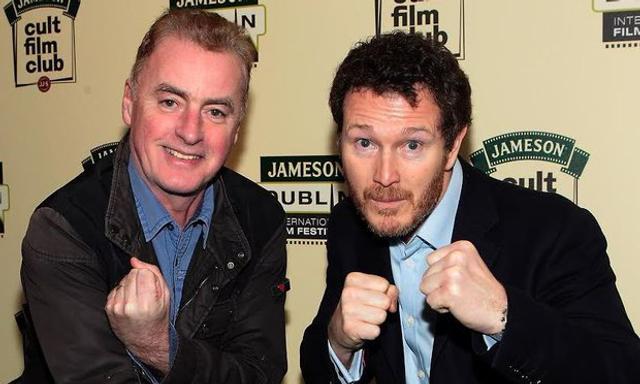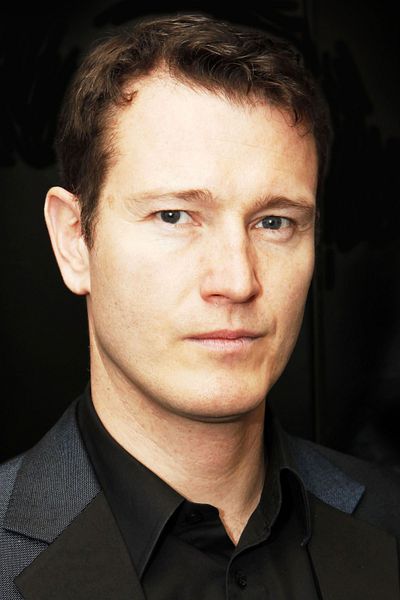Once the ‘it boy’ of the late 90’s in British cinema, Nick Moran’s career has been a long and varied one.
Staring in over 30 films, and being a lead on the West End, before writing and directed his own Olivier Award nominated play, Telstar, Moran is still best known for his portrayal as Eddy, the card sharp, in the Guy Ritchie’s classic, Lock, Stock and Two Smoking Barrels.
Over in Dublin to promote the film’s screening at last night’s Jameson Dublin International Film Festival, we caught up with Moran for a quick chat.
Lock, Stock was a fantastic film, and Guy Ritchie’s first feature length film. How did you come by the part? It was one of your very early roles wasn’t it?
Lock, Stock had a really checkered gestation period. It was originally a much larger production, with a bigger budget, and Ridley Scott as a Executive Producer. I had been told unequivocally by my agent that I wouldn’t even be able to get seen, but a friend of mine, Rocky Marshall, recommended me to Guy, and showed him a shoot a did in some magazine at the time, and I eventually got in the room by hook or by crook.
I had a natural affinity to the way Guy writes, because it’s very minimalistic, and it’s very direct. I read the scene, then he started improvising, and I went with him. He was impressed with it, and told me it was one of the best screen tests they’d had, but he said because it was all about names and faces, I’d he’d probably never get to see me again.
Then, basically, the budget kept shrinking. First it was low budget, then no budget, then it was a we’ll pay you when we get some money type of film. As it shrunk, the names attached to the film began to fall away, and I literally had to wait for everyone to turn it down. The last ones were Ethan Hawke, and I think Stephen Dorff. Then Guy called up and told me I had it. So it was by a complete fluke.
The success was massive, for such a smaller budget film to take off the way it did, it’s still being showcased at festivals like this. Did you have any idea before, or during filming that it would become the classic that it has?
I knew it was going to be really good, but I didn’t know it was going to be a success, because you can’t bank on that. I’ve done films that I was convinced were going to be huge successes, but weren’t, but I knew it was going to be good.
Because it wasn’t made by the BFI, or Film 4 or anything like that, it was the real definition of a indie film. Matthew Vaughan raised some of the money from friends and family members and stuff, and looking for investors from everywhere. So at the time I had no idea whether people would even see the film.
Obviously it ended up being quite a low budget film, is it true that the actors only got paid a few hundred pounds per week during the filming?
It was that or nothing. People were working on it for less than a grand a week. When the film was sold Matthew Vaughan gave everyone the same amount of money again. I was on it for about 6 weeks. I was on about 500 pound a week, and then they topped that up later on.
Were you used to that kind of pay at the time, seeing as you had already done a lot of stage work?
I was used to being poor, I was signing on the weeks before, so for me 700 pound a week was a lot of money. You came out of that film with nothing, and neither did anyone else, and it think that’s fair enough. The film made an enormous amount of money, but I didn’t make it. I didn’t write it, direct it, and didn’t invest anything in it apart from my time.
And there’s no regret about not asking for more?
No, none at all, see the next film I did after that was one called New Blood, and I got paid more money than I could have imagined. I wasn’t a great film, and it was a great success, but it was studio rates and because of Lock, Stock I was a bankable actor then.
How did you cope with the success of the film, and the fame and attention it brought to you?
It was like being a kid in a sweet shop with a tenner. You can do anything you want. I did a few movies that weren’t as high profile as Lock Stock, but they gave me some money, so there I was, still living in a housing association squat, in a disused pub, still with all the overheads of someone signing on, but with a bunch of vintage sports cars and Gucci suits, but I enjoyed every minute of it.
The only regret I have about that time was turning down some films at the time. I didn’t want to do tripe films, I wanted to do some cool films and emulate actors like Tim Roth and Albert Penney, and use the clout that I had to make good British films, not cheesy Hollywood films. The only problem was, I did a film called Christy Maury, which could have been one of the best received films of all time, but nobody saw it.
Were there any high profile films you passed on?
Lord of the Rings. The funny thing was Lock, Stock was huge in Australia, so Peter Jackson had seen it even though most studios hadn’t. But they wanted to shoot for about five years, originally trying to incorporate the Hobbit as well. I was in the mix for a few roles, but in the end I thought I could spend that time making a lot more indie films.
So I handled it badly in as much as I was probably a little unbearable, but I defy anyone to handle it well, because it is a tremendous, very powerful thing to be the bread and butter of a media machine that is so much bigger than you. ‘Great, let’s get him in this suit and send him to this party’ and youre in magazines all over the place, so busy riding the wave that you don’t know what’s on underneath it. And it turns out its all full of sharks underneath it. Then they just get the next person and get rid of you.
But you’ve always been kept busy, between writing, directing, and acting on screen and on stage. Is there a particular route you see yourself pursuing, or will you work at them all simultaneously?
I don’t think there’s anything wrong with doing both. Sean Penn is great at both, and George Clooney has done it really well too. The main thing is I don’t want to get so involved in acting that it stops me from directing. Once you’ve directed a film, acting in them is like being on holiday because everything is someone else’s problem. As an actor, it’s just like a day on a farm. I’m never not going to act, but I’m really looking forward to getting back in the chair. It’s all about what you miss, and directing is definitely that.




















































































